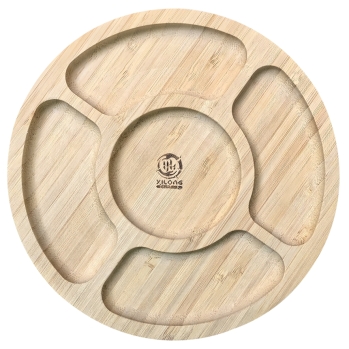How Durable Are Bamboo Products for Commercial Use?
When businesses consider switching to bamboo products, the first question that comes to mind is durability. Can bamboo really withstand the rigorous demands of commercial environments? The answer might honestly surprise you. Modern bamboo products, when properly manufactured, often outperform traditional materials in durability tests while offering significant environmental and economic advantages.
The Science Behind Bamboo's Strength
Bamboo's remarkable durability stems from its unique cellular structure. Unlike wood, bamboo fibers run longitudinally throughout the material, creating exceptional tensile strength. This natural engineering makes bamboo stronger than many hardwoods and even some steel alloys in certain applications.
Professional testing has shown that quality bamboo products can withstand years of commercial use without significant wear. The key lies in proper processing and manufacturing techniques. Leading bamboo manufacturers in China have developed advanced processing methods that enhance these natural strength characteristics while maintaining the material's environmental benefits.
Real-World Performance in Commercial Settings
Restaurants and hotels worldwide have been putting bamboo products to the ultimate test. Kitchen cutting boards made from bamboo consistently outperform plastic alternatives, showing less scarring and maintaining their integrity even after thousands of uses. The natural antimicrobial properties of bamboo also provide hygiene advantages that are particularly valuable in food service environments.
Office furniture applications tell a similar story. Bamboo desks and chairs maintain their structural integrity and appearance even under intensive daily use. Many facilities managers report that bamboo furniture actually ages better than conventional alternatives, developing a rich patina that enhances rather than detracts from its appearance.
Manufacturing Quality Makes the Difference
Not all bamboo products are created equal, and this is where manufacturing expertise becomes crucial. Advanced processing techniques, including high-pressure lamination and specialized coatings like UV treatments, dramatically enhance durability characteristics. These improvements enable bamboo products to compete directly with traditional materials in demanding commercial applications.
Quality bamboo suppliers invest heavily in processing equipment and quality control systems. These investments translate into products that meet international durability standards while maintaining competitive pricing. The result is bamboo products that deliver both performance and value for commercial buyers.
Maintenance and Longevity Factors
One of bamboo's greatest advantages is its low maintenance requirements compared to traditional materials. Unlike wood that requires regular refinishing or plastic that becomes brittle over time, bamboo products maintain their functionality with minimal care. This characteristic translates into lower total cost of ownership for businesses.
Proper care does extend bamboo product lifespan significantly. Simple practices like regular cleaning and avoiding extreme moisture exposure can keep bamboo products performing optimally for years. Most commercial users find these requirements less demanding than maintenance needed for alternative materials.
Cost-Performance Analysis
When evaluating durability, smart buyers consider the total cost equation rather than just initial purchase price. Bamboo products often provide superior value when factoring in replacement frequency, maintenance costs, and end-of-life considerations. The longer replacement cycles typical of quality bamboo products result in lower annual costs for many applications.
Additionally, the environmental benefits of choosing durable bamboo products support corporate sustainability initiatives without compromising performance. This dual benefit is increasingly valuable as businesses seek to balance operational efficiency with environmental responsibility.
Industry-Specific Durability Applications
Different industries have unique durability requirements, and bamboo products have proven successful across diverse sectors. Healthcare facilities appreciate bamboo's natural antimicrobial properties combined with easy cleaning requirements. Educational institutions value the safety and durability of bamboo furniture for active learning environments.
The electronics industry has embraced bamboo for protective cases and accessories, where durability must be paired with aesthetic appeal. These applications demonstrate bamboo's versatility in meeting specialized performance requirements while maintaining its environmental advantages.
Quality Standards and Testing
Professional bamboo manufacturers maintain rigorous testing protocols that verify durability characteristics across multiple performance criteria. These tests include impact resistance, moisture exposure, temperature cycling, and long-term wear simulation. Products that pass these comprehensive evaluations provide reliable performance in real-world commercial applications.
International certification programs provide additional assurance for buyers seeking durable bamboo products. These certifications represent genuine commitments to quality that protect both manufacturers and their customers from performance failures.
Bamboo Delivers on Durability Promises
The evidence clearly demonstrates that properly manufactured bamboo products deliver exceptional durability for commercial applications. When sourced from experienced manufacturers with advanced processing capabilities, bamboo products often exceed performance expectations while providing environmental and economic advantages.
For businesses considering bamboo products, the durability question has a definitive answer: yes, bamboo can and does provide the reliability that commercial applications demand. The key is partnering with manufacturers who understand both the material's capabilities and the specific requirements of commercial environments.







